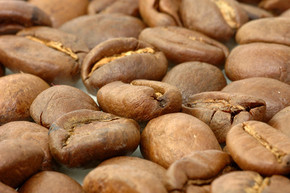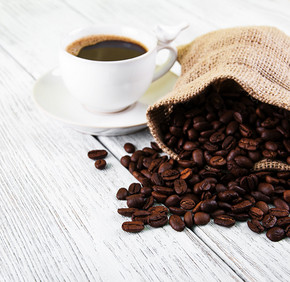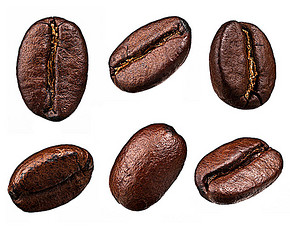Characteristics of sunny Yega Chuefei Coffee
Follow the caf é (Wechat official account vdailycom) and found that Beautiful Cafe opened a small shop of its own.
Recently, foreign professional coffee tasting website Coffee Review recommended three levels of G1 Chevy, micro-batch to the store, here a little introduction to these three Chevy.
The first branch comes from Adulina's Adulina Kochere. The coffee bean variety is Heirloom, which is a mixed variety of the local native forest. Although the natural environment of the producing area creates the flavor of Yega Xuefei, it is the local native variety that best reflects the flavor.
The treatment of raw beans is: full water washing.
Compared with the ordinary washed G2 Chevy, its taste is more clear and flawless, with a charming girl smile, bright, delicate citric acid, elegant taste, fresh lemon, jasmine, ginger and other flowers with a hint of honey make people relaxed and happy all day.

Coffee Review score 94
The second one comes.
Starting from today, the micro-roasting of Cryptomeria fortunei begins to give a more detailed introduction to each producing area. I hope that friends who like fine coffee will have the opportunity to get in touch with more interesting coffee knowledge under our efforts!
When it comes to Ethiopia, let's first talk about the origin of coffee. In about the sixth century, when Kardai, an Arab shepherd, was driving sheep to the Ethiopian prairie for grazing, he was very excited and excited to see each goat. He felt very strange. Later, after careful observation, he found that these sheep were excited only after eating some kind of red fruit. Cardai tasted some curiously. He found that the fruits were very sweet and delicious, and he felt very refreshed after eating them. From then on, he often went to eat this delicious fruit with the sheep. Later, a Muslim passed by and took some of this incredible red fruit home and distributed it to other parishioners, so its magical effect spread.
We will not forget that Africa is the hometown of coffee. Coffee trees are likely to be found in Ethiopia's KAFFA province. Later, batches of slaves were sold from Africa to Yemen and the Arabian Peninsula, and coffee was taken everywhere along the way. To be sure, Yemen started growing coffee in the 15th century or earlier. Although Arabia had the busiest port city in the world at that time, it banned the export of any seeds. This barrier was finally broken through by the Dutch, and in 1616, they finally smuggled the surviving coffee trees and seeds to the Netherlands and began to grow them in greenhouses.
In the northern part of the Great Rift Valley, a series of lakes are scattered, inlaid like pearls in the Horn of Africa. Lake Turkana stretches from Kenya to Ethiopia. This is not only the cradle of mankind, but also the cradle of coffee.
Yejia Xuefei, nearly 2,000 meters above sea level, is one of the highest coffee producing areas in the world. It has been a wetland since ancient times. "Yirga" means "settle down" and "Cheffe" means "wetland". Lake Turkana, Lake Abaya and Lake Chamo bring abundant water vapor. The Rift Valley, represented by Misty valley, is foggy all the year round, like spring all the year round, with a gentle breeze, cool and humid, and thousands of coffee trees thrive, giving birth to the unique and unpredictable atmosphere of Yejia Xuefei's unique fragrance of flowers and fruits.
European monastic academics opened up a local coffee growing industry, which was later run by coffee communities or cooperatives in villages around the town. There are no special plantations here, and coffee trees are naturally scattered in the forest and countryside. During the harvest season, the Ethiopian Coffee Trading Company will go to town to buy coffee beans collected by farmers and eventually sell them under the brand name "Yega Xuefei".
Yega Chuefei exudes an extremely complex aroma and shows an extremely excellent taste that is difficult to describe. In general, the dry aroma of Yega Chuefei is full of fruit, with strong aromas of dried fruit, strawberry, mango and apricot jam. Wet fragrance is like sweet syrup, like sticky apricot juice, wrapped in plain honey or chocolate. The entrance is not strong, the mellow thickness is medium, the sour taste is not obvious, but it is lively and bright, like fruit black tea.
Yega Xuefei's grading system is not based on the number of eyes, but on the proportion of defective beans in the total number of raw beans. Commonly seen are wash G2 and sun G3 Yega Chuefei, G1 is the highest grade, Yega Xuefei, which has the lowest defect rate and the best quality, can be rated as Grade 1 only after hand selection.
The shop once had a Cork Manor Solar G1 Chevy, which we loved very much. after selling out, we searched for a long time, but we didn't have a suitable Manor level G1 Chevy in storage, so we temporarily used a washed G2 Chevy. Recently, foreign professional coffee tasting website Coffee Review recommended three levels of G1 Chevy, micro-batch to the store, here a little introduction to these three Chevy.
The first branch comes from Adulina's Adulina Kochere. The coffee bean variety is Heirloom, which is a mixed variety of the local native forest. Although the natural environment of the producing area creates the flavor of Yega Xuefei, it is the local native variety that best reflects the flavor.
The treatment of raw beans is: full water washing.
Compared with the ordinary washed G2 Chevy, its taste is more clear and flawless, with a charming girl smile, bright, delicate citric acid, elegant taste, fresh lemon, jasmine, ginger and other flowers with a hint of honey make people relaxed and happy all day.
Coffee Review score 94
The second comes from Aricha Kebele in the small town of Yirgacheffe. Local coffee farmers send the fully ripe coffee cherries picked from the original forest to the local processing plant, which puts the coffee cherries whose flesh and skin are completely preserved in the elevated shed for sun treatment. It is this kind of high-intensity human labor greenhouse drying method that isolates contact with the ground. Prevent the smell of soil from being exposed to the sun. Create an unusually clean fruit flavor. After more than two weeks of sun exposure, the dark brown coffee fruit is stored professionally, waiting for the whole flavor to ripen.
Aricha's processing plant waits for coffee beans to be ripe, then removes sun-dried cherry pulp and sheepskin before shipment, and then removes unripe and overfermented beans, which may be the reason why Aricha is at the top of the G1.
This coffee bean is full of the sweetness of Sydney and the aroma of fermented wine. The palate has clear, bright, gentle and smooth acidity, very clean fermented fruit sweet, elegant fruit wine, coffee flowers, sweet finish and then sweet.
Coffee Review score 95
The third is from the Gedeo district of Yegashefi, where more than 600 small farmers work together to produce this royal specialty coffee, many of whom are members of the Waka Cooperative and have always produced stunning batches of coffee.
The Royal selection is one of the few high-scoring beans in Yega Sheffield that have been certified by the Woka Cooperative-Skal Organic Coffee. The treatment of raw beans is still the method of solarization in an elevated shed. Naturally, the level is also Grade 1.
The high-altitude growth environment and the excellent genes of the local native species have created the bright and juicy taste of the royal selection, and the sun-drying treatment adds a rich and strong fruit tone.
Rich fruit flavors such as floral, cantaloupe, strawberry, blueberry and ripe berries can activate the sense of smell as soon as the beans are ground into coffee powder. Earl tea, silky texture, clean and balanced taste, long, lively and varied fruit in the finish.
Important Notice :
前街咖啡 FrontStreet Coffee has moved to new addredd:
FrontStreet Coffee Address: 315,Donghua East Road,GuangZhou
Tel:020 38364473
- Prev

Yeah, how do you drink coffee?
Follow the caf é (Wechat official account vdailycom) found that the beautiful cafe opened its own small shop, Ethiopia's Yirgacheffe coffee, though petite, but sweet and gentle, as the hometown of coffee, Ethiopia's thousands of years of planting history and processing tradition have created high-quality washed Arabica beans with unique lemons and flowers.
- Next

Introduction to the taste characteristics and geographical location of Yega Xuefei coffee
Following Cafe Review (Wechat official account vdailycom) found that the Beautiful Cafe opened a small shop of its own, Yejia Xuefei, as a well-deserved representative of the third wave of coffee, one of its features is its easily recognizable flavor. Second, it is easy to show its characteristics when the a value is 55, which requires a deeper baking degree than the traditional Central and South American water-washed beans, and the suitable a value is about 25-40.
Related
- Detailed explanation of Jadeite planting Land in Panamanian Jadeite Manor introduction to the grading system of Jadeite competitive bidding, Red bid, Green bid and Rose Summer
- Story of Coffee planting in Brenka region of Costa Rica Stonehenge Manor anaerobic heavy honey treatment of flavor mouth
- What's on the barrel of Blue Mountain Coffee beans?
- Can American coffee also pull flowers? How to use hot American style to pull out a good-looking pattern?
- Can you make a cold extract with coffee beans? What is the right proportion for cold-extracted coffee formula?
- Indonesian PWN Gold Mandrine Coffee Origin Features Flavor How to Chong? Mandolin coffee is American.
- A brief introduction to the flavor characteristics of Brazilian yellow bourbon coffee beans
- What is the effect of different water quality on the flavor of cold-extracted coffee? What kind of water is best for brewing coffee?
- Why do you think of Rose Summer whenever you mention Panamanian coffee?
- Introduction to the characteristics of authentic blue mountain coffee bean producing areas? What is the CIB Coffee Authority in Jamaica?

